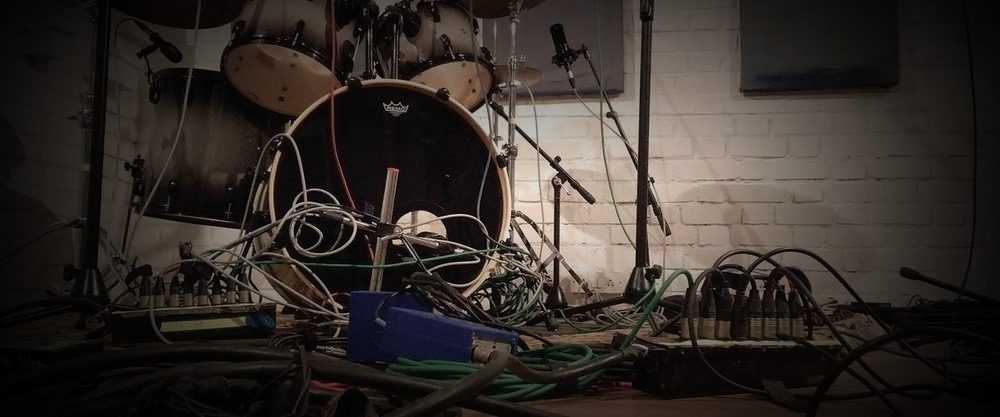Recording a musical performance is an art in itself— from the preparation involved to getting it to sound good and equipment. Considerably different from a live performance, sound engineers and music producers need a whole different skillset to ensure that they draw out a memorable performance from an artist in a studio setting.
Planning & Preparation
A studio session costs a substantial amount of money and involves a lot of coordination and time. It is the sound engineer and music producer who can ensure that artists make the most of their time and money with careful planning and preparation.
- Studio Ready Instruments— Ensuring that musicians have their instruments tuned is a small detail but one that can transform a recording, whether it is drummers or guitarists. If a drummer hasn’t tuned his kit and a guitarist needs to replace his strings, the sound quality is sure to be irrevocably compromised. This is an aspect of sound that cannot be fixed after the session is over.
- Warming Up— Whether the session involves a vocalist or a musician, warming up before the session is crucial. It saves valuable studio time and money and the recording session then begins on a smooth note.
- Setting Expectations— The sound engineer can take the initiative to set expectations before the recording session. If an artist is not familiar with the sound gear in the studio, he might have unrealistic expectations of the end result. It is a good exercise to ask the artist to think about the instruments he is going to use— from the guitar to the snare and even the amps. Give the artist an overview of the instruments the studio has available to bring their ideas to life.
- Sound Discussions— It is a good idea to set up a meeting with the artist or band to discuss influences, goals for their sound as well as all that is involved in the track. The sound engineer could ask them to bring samples of music from other artists that the band or artist feels could be a reference point.
Practice
It is much cheaper to rent a rehearsal space than try and practice in the recording studio. So the artist needs to practice, practice and then practice some more. This will ensure that the recording doesn’t need too many takes and exhaustion or boredom doesn’t set in. A recording session is a mentally, physically and emotionally challenging process and if the artist has practiced enough, muscle memory will help him sail through it. On the flip side, the recording also needs to sound fresh and not too rehearsed.
The Recording Process

Make the Artist Comfortable
Making The Artist Comfortable— The artist needs to be completely comfortable for the recording session because the best performances are given when they are most relaxed. The sound engineer and music producer can ensure this by checking if the artist is comfortable, that he has a bottle of water or warm tea at hand if he is singing and that the microphone is adjusted to a comfortable height. A case of nerves is pretty common among artists so it would be good to break the ice and reassure him. It’s nice to tell the artist that they don’t have to worry about messing up since retakes can be done.
Briefing The Artist— If it is a voice-over artist, the producer should take him through the material a few times. Making sure that the artist understands the expectations and is familiar with the material is very important. Another essential skill for a sound producer is to be able to sense when the artist is a seasoned one and treating him as such. In this case, the engineer also shouldn’t be afraid to offer constructive criticism to the artist. Since the musicians aren’t in a listening environment, they wouldn’t be able to pick up on nuances that are critical to the recording that an engineer could.
Giving Feedback— It is important for the sound engineer or producer not to be overly critical while talking to the artist. Encourage your artist to do more takes by suggesting, instead of bluntly telling them where they went wrong. Avoid being condescending and stay aware throughout the recording process. The sound engineer needs to be able to pick up on certain cues. For instance, a guitarist might be extremely picky about what he considers his tone. In this case, it might be good to suggest you record the tone the guitarist wants and then try another tone before making them listen to both. The obvious difference in the final quality will be a great strategy to get him to the realization that your way is better instead of beginning an argument.
Music producers and sound engineers need to be particularly attuned to the recording needs of artists. While many of these points might seem self-evident, they can easily be overlooked by both experienced and new artists. Since a recording is a significant undertaking, planning, preparation and taking care of other relevant aspects will make the experience a rewarding and fun one.

